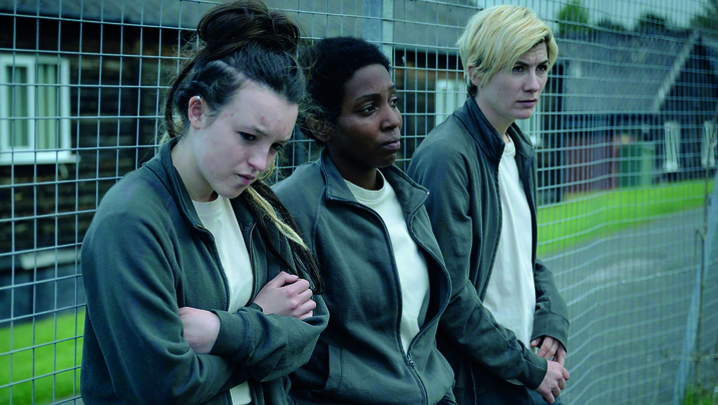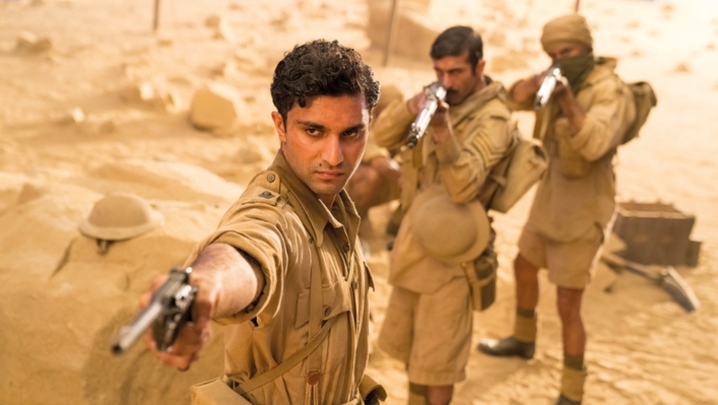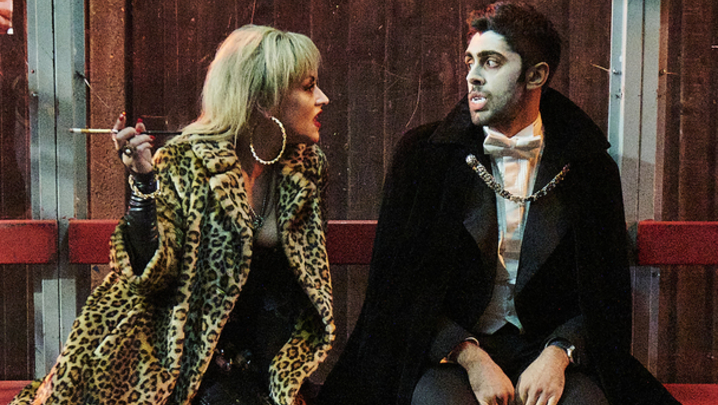Maggie Brown meets TV screenwriter Peter Bowker, whose show The A Word examines a family’s complex responses to their autistic son
Within a few minutes of taking tea with television writer Peter Bowker, it becomes clear why he writes such effective dramas on subjects close to his heart. He is a people person: curious, observant and fascinated by family dynamics and human quirks. At one point, he suddenly directs a question at me, and I realise how easy it would be to open up to him.
Aged 57, born in Stockport – his strong northern accent is still intact – he also tends to end every other sentence with laughter. When he talks about his fictional characters, it is as if they are real.
For example, his latest series, The A Word, revolves around an extended family’s response to Joe, an autistic five-year-old boy, played by Max Vento.
Bowker says that he was so totally engaged that “I wrote a whole case study of the imaginary figure”, then qualified as the production’s autistic adviser so that he could be on set to check that nothing was changed.
“Unlike many writers, I have no interest in directing. But I didn’t want to get a phone call in my study at home, telling me: This couldn’t happen.’ It is such a controversial area.”
Disability is one of the recurring strands in Bowker’s versatile output: his first authored series, Flesh and Blood (2002), told the story of an adopted man tracing his birth parents and eventually coming to accept their mental impairment. It was hailed as a breakthrough.
Later, there was high praise for Marvellous, his touching 2014 BBC Two drama about the extraordinary life of the real Neil Baldwin, a man with learning difficulties, played by Toby Jones.
“It opened doors,” says Bowker. “The A Word was much easier to sell on the back of it. People were reassured that I could do warm and funny. I thought about a million people would watch it.” In fact, Marvellous achieved a consolidated audience of 2 million. “I thought they would like it [and then] it would be over. But, my God, even now people stop me and talk about it.”
Bowker spent months visiting Baldwin in Stoke-on-Trent before he wrote the script. They became firm friends: Bowker spent last Boxing Day in Stoke with Baldwin, who also stays at the Bowker home in London’s East Sheen, and they walk Baldwin’s dog in Richmond Park. “I don’t live up North in a cobbled street,” he laughs.
The experimental, scrapbook approach and daring use of the Neil Baldwin Choir for Marvellous reveal another of Bowker’s traits, a willingness to take risks.
His 2004 series Blackpool, about an ambitious arcade owner played by David Morrissey, married songs (Viva Las Vegas was the opening number) and performance with sleaze, referencing Dennis Potter. It was bought for a remake by CBS – which flopped – but Blackpool also brought financial rewards.
After Bowker’s fruitful collaboration with Director Julian Farino on Marvellous, the pair are working on another idea for an uplifting drama mined from difficult material: Syrian asylum seekers in Britain.
That’s another Bowker compulsion, working on two projects simultaneously. The main project absorbing his obviously huge energy is a Second World War drama, not yet green-lit, but probably for the BBC.
It tells the story of the war from multiple perspectives: a Polish family, an American surgeon working in Paris, and German, French, and Canadian protagonists, too.
“And there is a connection between these people. We, as viewers know it, they don’t. I describe it as the love child of Deutschland 83 and Saving Private Ryan.”
It will, he adds, be “one huge thing – epic, if it happens. I have written the first script, written a huge series bible, the story of the war. It’s the hardest thing I have ever done in my life, like being back at school.”
Professor Richard Overy, of Exeter University, is the historical adviser for the project, which is being developed by ITV-owned Mammoth.
“The irony is that, whenever I write something, I think of something else. Where is this coming from? I start on something and have an idea for something else,” he confesses.
At least with BBC One’s The A Word, the inspiration is clear – although it coincides with public concern over access to treatment for people who are autistic. Bowker spent 14 years at a Leeds hospital teaching youngsters with learning difficulties, including children on the autism spectrum. “That was my work before I became a writer,” he says. Prior to that, he studied philosophy and English at Leeds University.
In his thirties, he started a creative writing master’s at the University of East Anglia, before switching to TV scriptwriting when he realised that he was more interested in crafting dialogue. This was followed by work on BBC One’s Casualty and ITV’s Peak Practice.
"It's the hardest thing I have ever done in my life, like being back at school."
While The A List is a reimagining of the Israeli series Yellow Peppers, relocated from the Arava desert to the Lake District, it is informed by Bowker’s experience of a friend coping with an autistic child.
“You diagnose autism as a descriptive condition, not a blood test,” he says. “It is very hard to pin down and locate where it begins and ends. The disruption to the family... just about every fault line in the relationship is exposed. When I was teaching, I reckon 80% of the parents must have split up over it.”
Another Bowker trait is his tendency, when he finds an actor on his wavelength, to keep in touch. Christopher Eccleston played the adopted son in Flesh and Blood, and was cast as the blundering grandfather in The A Word.
Bowker explains: “I thought it would be fun to have a patriarch comparatively young and who still has a vibrancy and who cannot be patronised – that’s for sure! Not only is he annoying, domineering, controlling, he’s Chris!
“All that vitality and drive. I had to write the email, to ask him to play a granddad. He’s only 52. I said, ‘You might want to tell me to fuck off but.…’” He adds: “If an actor gets the emotional rhythm of my work, I hang on to them. I have used Stephen Graham more than once. I would always return to Jamie Nesbitt [cast in Bowker’s Iraq war drama Occupation]. I think we gravitate towards each other.”
And Toby Jones, after playing Neil Baldwin was the uneasy banker in BBC One’s Capital, Bowker’s 2015 adaptation of the John Lanchester novel.
But he hopes he has not finished with autism and The A Word: “My real ambition for it is to come back every two years, because the problems and the issues, and what it does to the family, get worse. That becomes more pronounced as they get older. And once a child stops being cute.…
“On a purely selfish, dramatist level, that is satisfying because it is about reality, what we value, the whole drive for our children, for them to be successful at some level.”
"If an actor gets the emotional rhythm of my work, I hang on to them"
Is disability under-represented on television? “I have an agenda, which is: more integrated castings, where, say, one of the characters has cerebral palsy. Make it part of drama.”
Even so, Bowker thought it would be too much to ask of a child on the autism spectrum to play Joe.
How would the young Bowker view you? “Through a haze of amphetamine,” he laughs. “He’d probably think I am a wanker. And that’s right, an 18-year-old should always think that. He’d also be delighted that I was making a living as a writer. I think he would be surprised that I moved south. I am.”
Why south? “I met my girlfriend, [now my] wife, down here. When I first moved down, it was easier to get to meetings.”
A keen theatregoer, Bowker nurses an ambition to write for the stage: “I like the live-ness of it all, the unmediated experience.”
Unsurprisingly, one of his favourites is The Curious Incident of the Dog in the Night-Time.







